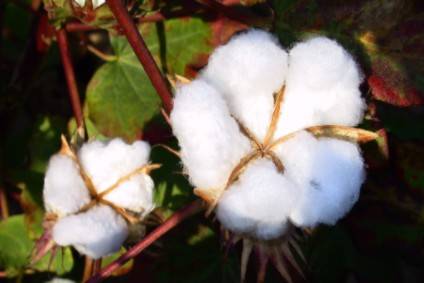- To qualify as organic and to be marketed as such, cotton must meet a comprehensive list of criteria.
- Oeko-Tex has developed a testing service that helps companies test their organic cotton products for GMOs.
 |
| Test results indicate whether GMOs were detected or not in cotton |
Oeko-Tex has added a unique testing service to its Standard 100 certification that helps companies test their organic cotton products for GMOs (genetically modified organisms).
The certification body says the new test provides a straightforward manner to test for GMO in organic cotton. Samples are analysed using RT-PCR (reverse transcription- polymerase chain reaction) technology, which can identify known genetically modified materials at a limit of 0.1%.
To qualify as organic and to be marketed as such, cotton must meet a comprehensive list of criteria governing the cultivation, processing, and segregation of the cotton. One major requirement is that the cotton plants cannot be genetically engineered.
Test results indicate whether GMOs were detected or not. Organic cotton products seeking Standard 100 by Oeko-Tex certification will be required to undergo GMO testing. This is optional for other products. Currently, the GMO testing technology is limited to cotton.
"We learned in our 'The Key To Confidence' study that consumers who buy eco-friendly clothing and home textiles are likely to verify claims," says Georg Dieners, Oeko-Tex general secretary. "The new GMO testing gives manufacturers and marketers confidence that their organic cotton products meet regulatory and consumer expectations with regards to GMOs as well as the independent, traceable documentation to prove it."
The popularity of organic cotton has grown substantially in recent years, and increasingly, consumers expect the organic products they buy to be genuine and verifiable. According to Oeko-Tex, around 70% of cotton globally is genetically altered. For example, some forms of cotton have been engineered to be herbicide-resistant. Others have been infused with an insecticide to kill pests like boll weevils.
While the industry can make strong arguments in favour of these cotton DNA modifications, the producers and consumers of organic cotton reject them. They place greater value on the environmental, social, and product safety paybacks that they perceive organic cotton offers, Oeko-Tex says.
Πηγή: just-style.com

